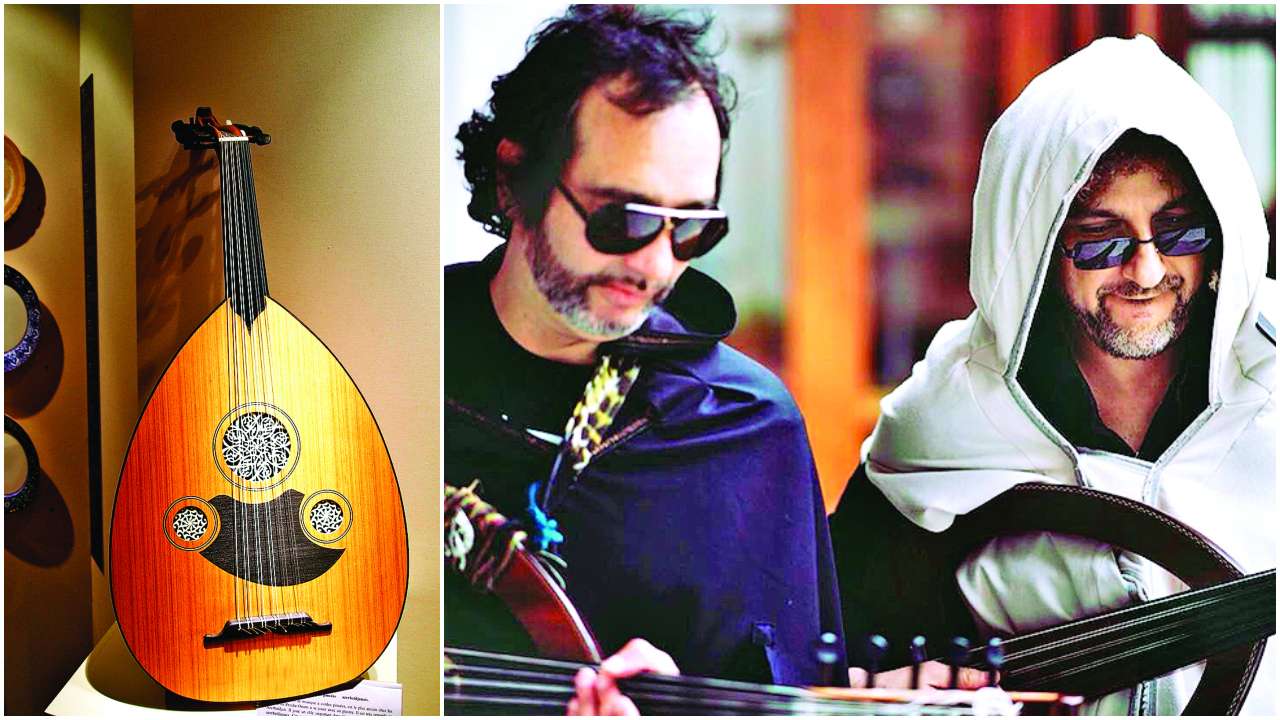
When skilled hands pluck at the strings of the oud, the sound is slightly deeper than that of a sitar, and brings to mind the dunes and endless sands of the Middle East and North Africa, where it originates. This string instrument of the lute family, once used as accompaniment with bedouin poetry, finds few exponents now.
A musical duo – DuOud, who performed earlier this year at the World Sacred Spirit Festival in Jodhpur – with their Maghrebian (Northwest Africa) origin wanted to revive this part of their heritage, and give it a form that it had never had before. "It wasn't premeditated, we began playing the oud together for traditional songs we love," says Jean-Pierre Smadja aka Smadj, who hails from Tunisia. "We used a computer for the beats. I was involved in electronic music since a lot of years, so I decided to propose compositions and modern electronic beats and sounds, Mehdi [Haddab, his bandmate] liked it and we begun to compose songs together."
The idea, adds the musician, was to adapt electronic music with the typically oriental sound of the oud. The result, with its trance elements, jazzy grooves, metal guitar riffs and break beats, creates a mix that stands out among the many attempts at mixing trance with oriental instruments.
Perhaps another element that makes DuOud's music unique is the fact that both musicians have steeped themselves in the traditional style of the instrument before taking it into the electronic genre. They picked up several classical pieces, especially of the Andalusian repertoire along with the popular music from Maghreb. Smadj explains, "The impact is definitely there in all our compositions – the modulations of some songs, the technique of some phrases..."
The Abro-Andalusian repertoire, explains Haddab, whose name is also associated with bands Ekova and Speed Caravan, has a rich oral tradition dating back to the 15th century, with different schools persevering till date. "We call these the Gharnati, Hawzi, Malouf and they offer us an unlimited source of inspiration. Rhythmic science, and the art of finely chiseled melodies are all elements that can be introduced," he adds.
Yet another source of inspiration is '90s music from Paris, where both the musicians are now based. "You had lots of new association of musicians and fusions of music," reminisces Haddab. "We are the children of this effervescence, we matched the energy to develop new styles and new ways to think music and that's what we still do now."
With many inspirations, aspirations and roots in different cultures, we ask the duo to simplify their relationship with the oud. Smadj says it best: "It's a love affair and lots of work."